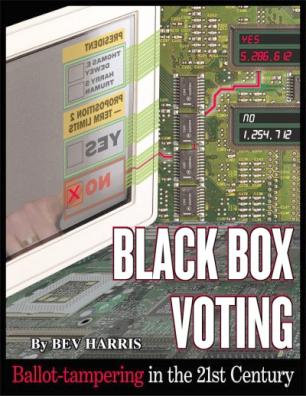Florida–Revisiting the 2004 election, and now

Two debaters in Jacksonville
In Thursday night’s GOP debate in Jacksonville, Newt Gingrich made a point of sounding more decent on stage for CNN than in his stump speeches around Florida (and South Carolina). The “food stamp” prevarication, while repeated, was somewhat softened. He even mentioned his grandchildren. Gov. Marco Rubio’s advice aside, the rhetorical tack of sounding nice temporarily is routinely adopted by the GOP in a national election, to blur the line with Democrats as much as possible in order to pick up votes or to cause enough confusion to get voters to stay home. That ‘voter apathy’ we used to hear so much about, in the national political press.
Also, being in Florida with its large Latino population, Gingrich, Mitt Romney and Rick Santorum all made a point of sounding humane on illegal immigration. Gingrich attacked the notion of deporting grandmothers. Santorum mentioned his immigrant grandfather. Romney mentioned his father’s having come to this country from Mexico and his wife’s father’s having come from Wales.
Immigration as a hot-button issue is a staple of Republican Party campaigns and events, of course. The way to help would be to help Mexico.

Sign
Considering the human suffering and injustice involved, what they do not say is galling:
- The majority of people entering the U.S. illegally come through Mexico.
- Conditions in Mexico are deplorable. It is hard to make a living there.
- Ergo, one could infer that many undocumented immigrants are seeking not only freedom but survival.
Where GOPers don’t go:
- Therefore, to forestall illegal immigration from Mexico, it would make sense to help Mexico.
- We could stop buying drugs from Mexico, a commerce that bloats the cartels at the expense of everyone else. Sticking it to the man is much more like buying it from the man, where kingpins come into the picture.
- We could stop shipping assault weapons to Mexico. The cartels use them to impose a reign of terror on the populace.
The only candidate on stage capable of recommending sane and reasoned policy in regard to Mexico and the border, as usual, was Ron Paul. In a nutshell: “You can’t deal with immigration without dealing with the economy.” Paul also noted that we have expended vast resources on the border between Afghanistan and Pakistan. Border-security fanatics might be well advised to fantasize less about building a fence between the U.S. and Mexico and to focus on bringing those resources home.
Or such was the suggestion. Most of Paul’s statements received friendly rounds of applause from the audience—as did converse statements from the other candidates.
Back to Florida—
Nothing I saw or heard in the debate last night dispelled my standing contention that the GOP nominee, whoever he is, will need all the help he can get in a general election. Hence the history reminders–
For background:
Predictably, voting technology tends not to arise as a topic in these debates either. As previously written, Florida was one of the four states in 2004 where the biggest swing from exit poll to published vote tally also swung the state from to Bush. (The other three were Ohio, New Mexico, and Iowa.)
Remember, the big voting legislation called the Help America Vote Act was passed in 2002 by a GOP-controlled Congress under the GWBush administration, at a time when Team Bush was flying high in opinion polls because of 9/11. One of the bill’s key features was what it did not include—a paper trail. Following the ‘hanging chad’ debacle in Florida, the act (HAVA) authorized the use of electronic voting machines in presidential elections. (N.b. Chads were not the real problem in Florida.) Regrettably, HAVA did not require a paper receipt for voting. Thus there was effectively no provision for ironclad verification, for independent and objective assessment of whether data produced by the voting machines accurately reflected the votes cast. Democrats largely tried to require the paper trail in the bill, but the provisions were successfully fought off by Republican congressional leaders including Tom DeLay. Without the paper trail, it is impossible to have a separate recount.
Problems with Diebold
Among voting machines used in Florida, questions have swirled around Diebold voting machines in particular for years. A reader reminded me earlier of this paper on Diebold machines published back in 2004 by Dr. Avi Rubin, professor of Computer Science at Johns Hopkins. Rubin and his students studied Diebold’s source code—theoretically protected lines of code making up the software that runs the e-voting machines.

Diebold scanner atop its garbage can, also from manufacturer
The software program was supposed to be encrypted. To its surprise, however, Rubin’s team found that Diebold machines were encrypted by a method called Digital Encryption Standard (DES)–a code that was broken in 1997.
Furthermore, the key to the encryption was in the source code. Thus all Diebold machines would respond to the same key; breaking into one was breaking into all.
Rubin’s paper was published in February 2004. In April 2004, California’s Voting Systems and Procedures Panel said that the Diebold machines had malfunctioned in the state’s March 2 primary. The panel recommended unanimously that the state not use Diebold machines. In September 2004, Bev Harris of Black Box Voting successfully taught Baxter the chimp how to hack Diebold. The film is available on YouTube here.

Voting technology scrutinized by Black Box Voting
And all this is relevant to Florida how?
Florida was one of the close states in 2004 showing exit-poll anomalies, written about previously. The differences between op-scan counties and touch-screen counties in 2004 in Florida look like part of the same picture.

Florida counties, op-scan and touch-screen
It is a pattern of great-to-greater variation between party registration and party presidential voting in 2004, in all 52 Florida counties using op-scan. (Florida has 67 counties.)
The 15 Florida counties using touch-screen machines showed much less variation between their party registration and party presidential voting.
Simplifying here, there are three main areas to focus on—counties where the 2004 outcome was the reverse of the 2000 outcome; counties where the 2004 outcome was the reverse of party registration in the county; and counties where the 2004 outcome was extraordinarily close.
Op-scan technology predominated in all three categories—but this may reflect the fact that op-scan technology predominated across the state.
Starting with the slightest example, in only three op-scan counties was the 2004 outcome the reverse of the 2000 outcome:
All three switched from Democratic (Gore) in 2000 to Republican (Bush) in 2004. Two touch-screen counties switched from Dem in 2000 to GOP in 2004—Pasco and Pinellas.
But in 28 op-scan counties, the 2004 outcome was the reverse of majority party registration:
- Baker—switched from punch card
- Bradford
- Calhoun
- Columbia–from punch card
- DeSoto–from punch card
- Dixie–from punch card
- Duval–from punch card
- Franklin
- Gilchrist–from punch card
- Glades–from punch card
- Gulf
- Hamilton
- Hardee–from punch card
- Hendry
- Holmes
- Jackson
- Lafayette
- Levy
- Liberty
- Madison (close)–from punch card
- Okeechobee (close)
- Osceola–from punch card
- Polk
- Putnam
- Suwanee
- Taylor
- Wakulla–from punch card
- Washington
Again, there were 28 Florida op-scan counties where the vote went for Bush in 2004 although more registered voters in each county were Democratic. Eleven of these had also switched to op-scan from paper balloting (the much-maligned punch card).
In six op-scan counties, the outcome was very close:
- Flagler—switched from Gore to Bush
- Madison—Bush won, more Dems registered
- Monroe
- Orange
- Saint Lucie
- Volusia
Bush won all these nail-biters, including one county where the outcome switched from Gore to Bush and one that had more Democrats registered than Republicans.
These op-scan counties are interesting. Many of them are small, and some of the excellent statistical analyses of the 2004 election in Florida exclude small populations. But in toto they were significant, because they showed a heavy preponderance of Democratic Party registration. Of 15 touch-screen counties, only one had the Dems with more than 50 percent of registered voters–Broward, with 50.5 percent.
But of the 52 op-scan counties, 30 counties had the Dems with more than 50 percent of registered voters. In most of these (21 counties) the Democrats constituted more than 60 percent of registered voters. In thirteen of them the Dems had more than 70 percent of registered voters, and in four the Dems had more than 80 percent of the registered voters.
Incidentally, Baker County, with a whopping reversal and 77 percent turnout in 2004, was the only county using Sequoia op-scan machines. Diebold is not the only problem.
Outcomes in op-scan versus touch-screen counties, Florida 2004, have been presented in simple contrasts here, but this is not to say that the 2004 outcome was a clean sweep. For the 52 op-scan counties, of the 43 counties where Bush votes went up over 100 percent more than Republican registration, Bush still lost seven.
For the 15 touch-screen counties, in the three counties where Bush votes went up over 100 percent more than did Republican registration, Bush still won. In the three touch-screen counties where Kerry votes went up over 100 percent compared to Democratic registration, Kerry still lost. There are, as we know, problems with DREs (touch-screens).
There are problems with Florida.
Reiterating: For Florida counties, the biggest difference in the 2004 election was not between ‘red’ and ‘blue’ but between touch-screen and op-scan. Fifteen Florida counties used touch-screen voting machines, produced by ES & S or Sequoia. The other 52 counties used paper ballots processed by optical-scanning equipment manufactured by ES&S, Diebold and Sequoia.
The difference is a simple and clear pattern. Touch-screen counties’ vote for president almost always went with their party majority. Op-scan counties’ vote for president mostly went against the county’s majority party. Of the 52 counties using op-scanned ballots, only 21 voted in the direction predicted by their voter registration, fewer than half. The other 31 counties went opposite their own voter registration, all but one going to Bush. The exception was Monroe County, with an exceptionally close outcome.
Even where the op-scan vote ran with party registration, the margin was different, suggesting again that at the last minute John Kerry lost Democrats, independents, and unaffiliated voters–in an election where independents and new voters were trending toward Kerry.
A manual recount of two counties and part of another by two Miami Herald reporters netted Kerry 11 additional votes in one small county, 24 in another. They discontinued the count in a larger county where his projected pick-up would be about 1,300 votes.
Much of the voting public was well aware of these issues after 2004. They were submerged in the Obama landslide of 2008. But they could surface again in 2012—especially if a drumbeat of “close election” predictions is sustained.
In my opinion, resentment at the cavalier treatment of the vote itself fueled public anger and distrust of the GOP before the elections of 2006 and 2008. That neither the FEC, Justice, nor anyone else was able to address these problems after the 2008 election contributed to the outcome in 2010. The right to vote is fundamental. Congressional Republicans, for obvious reasons, have done everything in their power to prevent meaningful safeguards for election integrity.




















